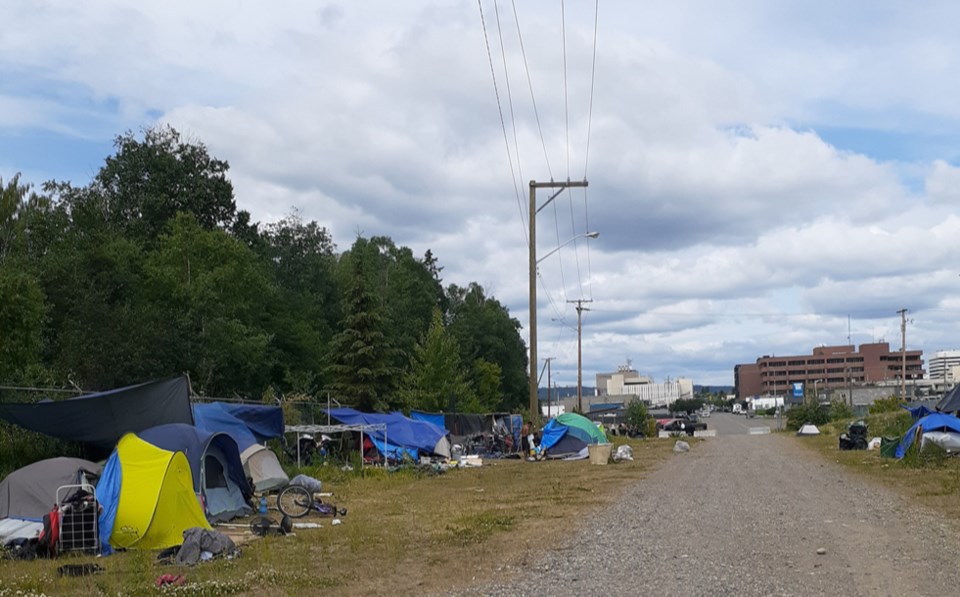“Flip, flop, belly flop. Give the dog a bone.”
That’s what the late Ben Meisner would have called what happened Monday night at Prince George city council if he had lived to see it.
Meisner would trot out that phrase every time politicians would thunder about how it was time for definitive action, lay out a course and then timidly back away when flooded by angry phone calls and emails in reaction to their best-laid plans.
The two flip flop belly floppers of the day are Mayor Lyn Hall and Coun. Garth Frizzell.
Two weeks ago, the first three readings of the Safe Street Bylaw passed a 5-3 vote on council, with Hall and Frizell, joining Terri McConnachie, Kyle Sampson and Brian Skakun in support. Frank Everitt, Murry Krause and Cori Ramsay voted against, while Susan Scott was not at the meeting.
On Monday, Hall and Frizzell changed their minds while Scott voted against passing the bill.
It’s a postponement, they say, until Aug. 30.
Sure.
Ramsay’s original motion to postpone was actually until Oct. 4, showing the real intent here and it’s classic cynical politics. Kick the ball down the road until the problem either disappears or, in this case, the fall weather rolls in and the current homeless population move into the available spaces in shelters and short-term housing or find other alternatives.
By next summer, there will be more housing and shelter options for low-income and vulnerable residents, so the calculus is that there will be less of a problem by then, making the Safe Streets Bylaw irrelevant.
That’s some sketchy math.
The existing shelters are currently not full and the Safe Streets Bylaw would not be enforced if they were. In other words, for a variety of different reasons, many of the people living in tents in various spots downtown and elsewhere, including the village directly behind The Citizen’s offices, are often choosing to live on the street instead of in the shelters.
Much handwringing is devoted to the various restrictions in shelters surrounding behaviour but those restrictions seem to be only an issue during late spring, summer and early fall, when it’s warm enough to live outside and not have to follow any rules. When it’s cold, those barriers seem to fall away and people have more incentive to follow the rules in exchange for a warm bed and a roof over their head.
Furthermore, there are plenty of supports for people living on the streets and in tents during the summer. Food, water, clothing, showers and toiletries are available. As for washrooms, well, it’s camping, meaning public toilets are fine but an impromptu outdoor solution is faster and easier.
Seen that way, the homeless camping next summer could be as bad or worse than it is this year, regardless of the local housing and shelter options coming online in the next year.
Then what?
There is a path forward for both sides of this issue to get some of what they want but it would require compromise and political will.
Simply put, city council should both allow a tent city and adopt the Safe Streets Bylaw.
On their own, they have significant problems but they could be used together, to accommodate the local street population during the summer months and provide everyone who works downtown with a greater sense of security.
Tent cities are the outdoor equivalent of flop houses, meaning they are dangerous without significant supports in place, from public health to policing. If that support is there, one or two spots could be set aside near downtown where people would be allowed to camp from May through September. The bylaw would be enforced everywhere except in those safe zones.
Of course it’s not perfect. Far from it.
It is, however, immediate action, which both sides have been calling for.
Furthermore, it would give everyone a small victory and help turn down the temperature on the increasingly bitter debate.





